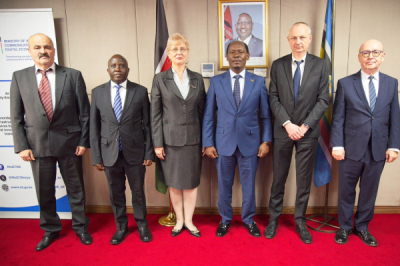- Niger establishes National Cybersecurity Center to boost digital security
- CNAC to implement national strategy amid rising cyber threats
- Digital growth, cyberattacks surge; awareness and skills remain key gaps
The Nigerien government has approved the establishment of a National Cybersecurity Center (CNAC) to strengthen the country’s digital security. Two draft decrees, one creating the institution and another approving its statutes, were adopted by the Council of Ministers on Saturday, Oct. 11.
“The main mission of the National Cybersecurity Center is to oversee the implementation of Niger’s national strategy for securing and defending information systems and critical infrastructure, to foster a secure, resilient digital environment that supports the country’s economic and social development,” the Council of Ministers said in a statement.
The CNAC’s creation is part of the National Cybersecurity Strategy, adopted in December 2022. The strategy seeks to ensure “a sustainable and effective digital transformation in Niger” and to “build investor and public confidence in information and communication technologies.” Authorities see ICTs as a key driver of socio-economic development, a view shared globally and reinforced by the International Telecommunication Union (ITU), which emphasizes that strong cybersecurity is essential for countries to fully benefit from digital innovation.
The renewed focus on cybersecurity comes amid a rise in cyberattacks driven by the rapid expansion of digital services. In an August 2024 interview with Africa Cybersecurity Magazine, Aïssata Chanoussi, Director of Information Systems Security at the National Agency for the Information Society, said the financial impact of cyberattacks in Niger had increased by between 70% and 400% since 2022.
Digital adoption in Niger has accelerated sharply. From 2019 to 2025, the number of mobile subscribers grew from 9.81 million to 12.09 million in 2022, and then to 16.5 million in 2025, according to DataReportal. Over the same period, internet subscribers rose from 2.33 million to 3.72 million, eventually reaching 6.37 million.
The ITU’s Global Cybersecurity Index 2024 ranks Niger in the fourth tier (T4) out of five. While the country performs relatively well in its regulatory framework, further progress is needed in technical and organizational measures, capacity building, and cooperation. Chanoussi has previously highlighted public awareness and training local talent as the main challenges for improving cybersecurity resilience in Niger.
Isaac K. Kassouwi



















